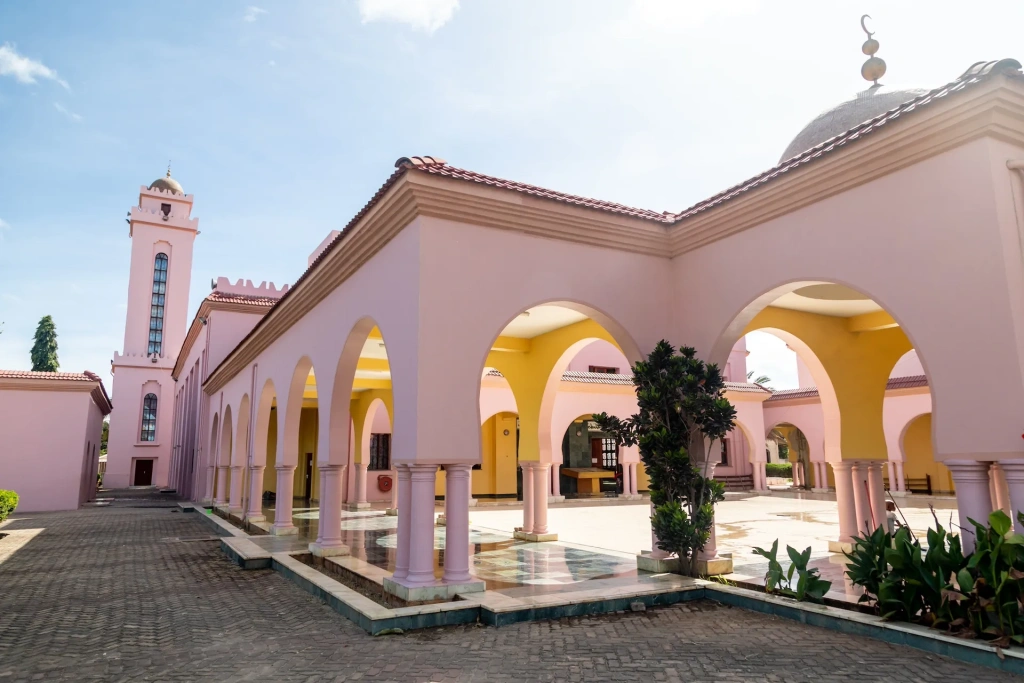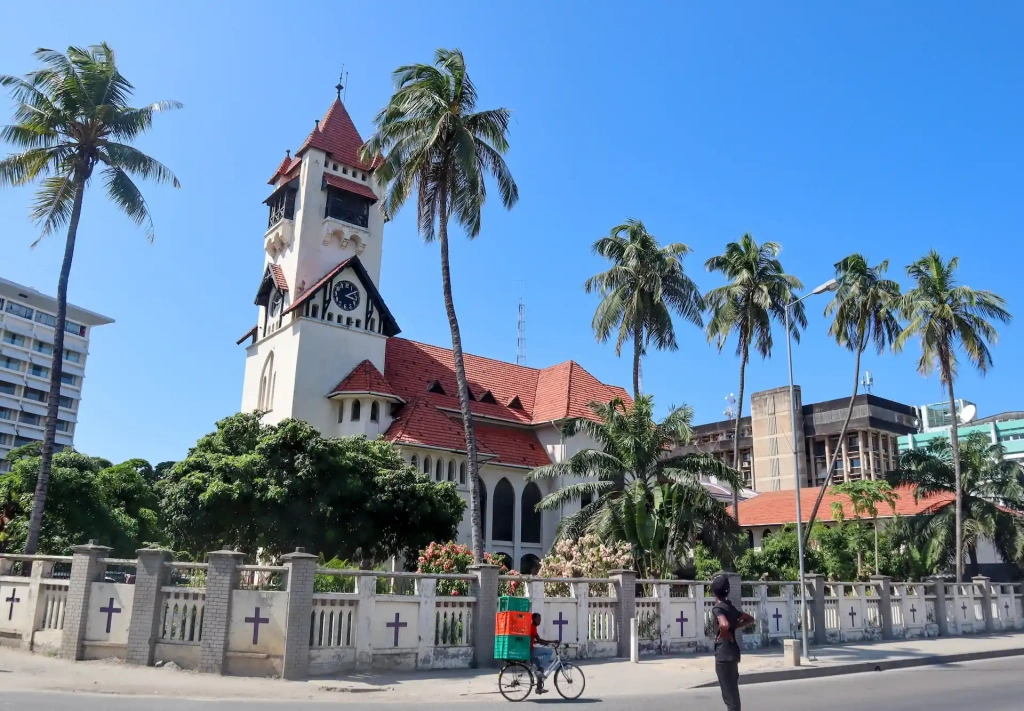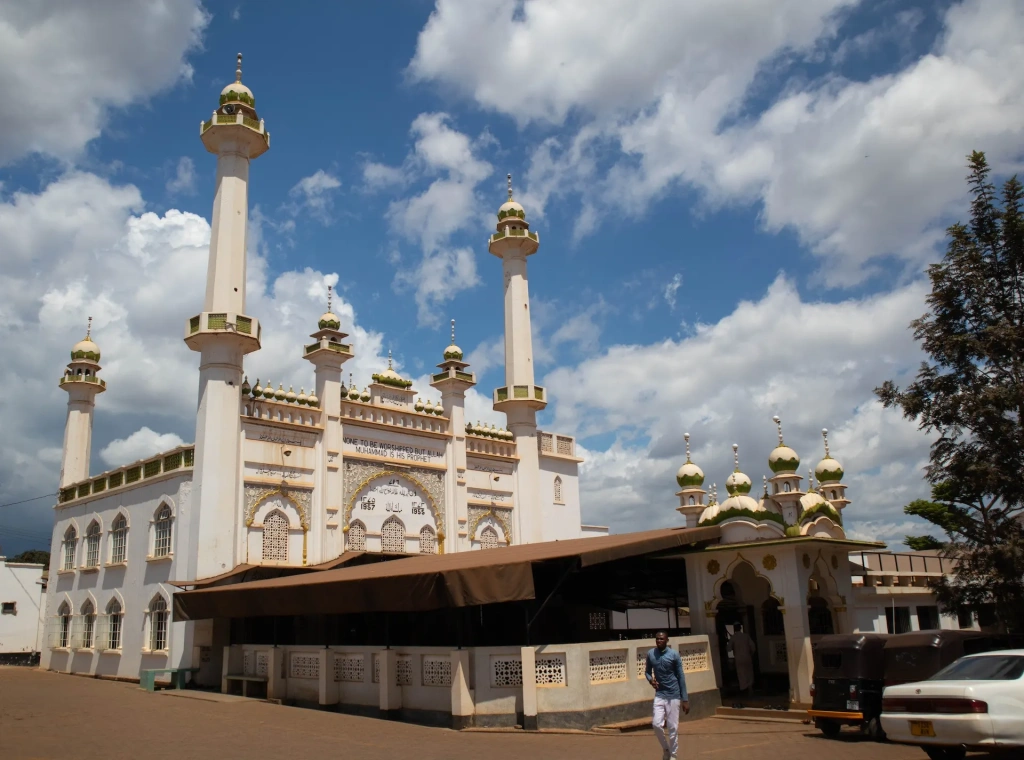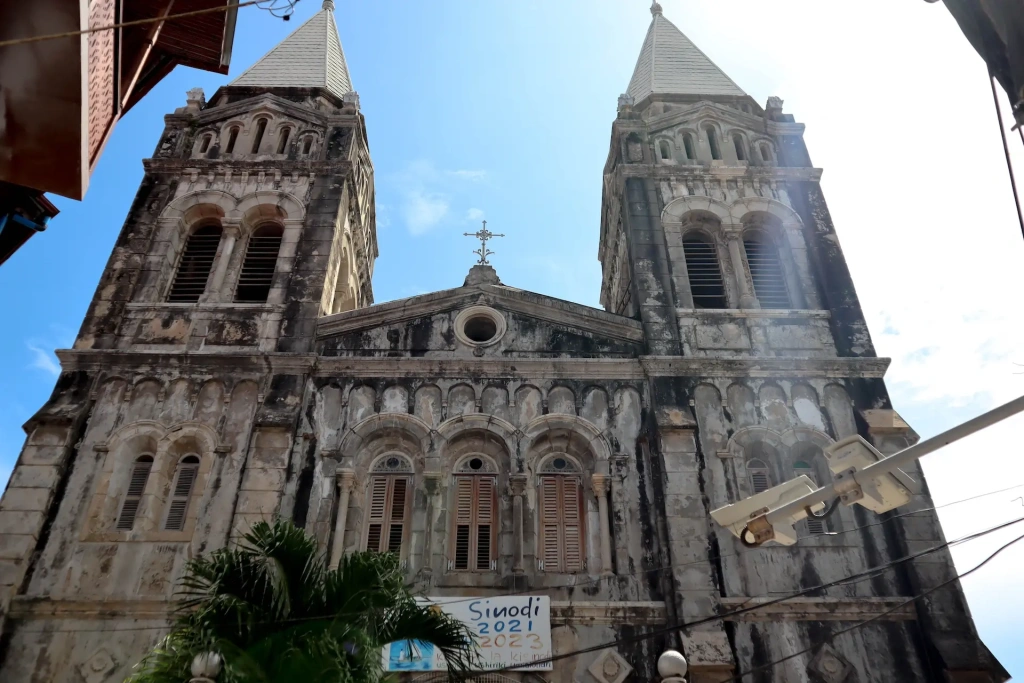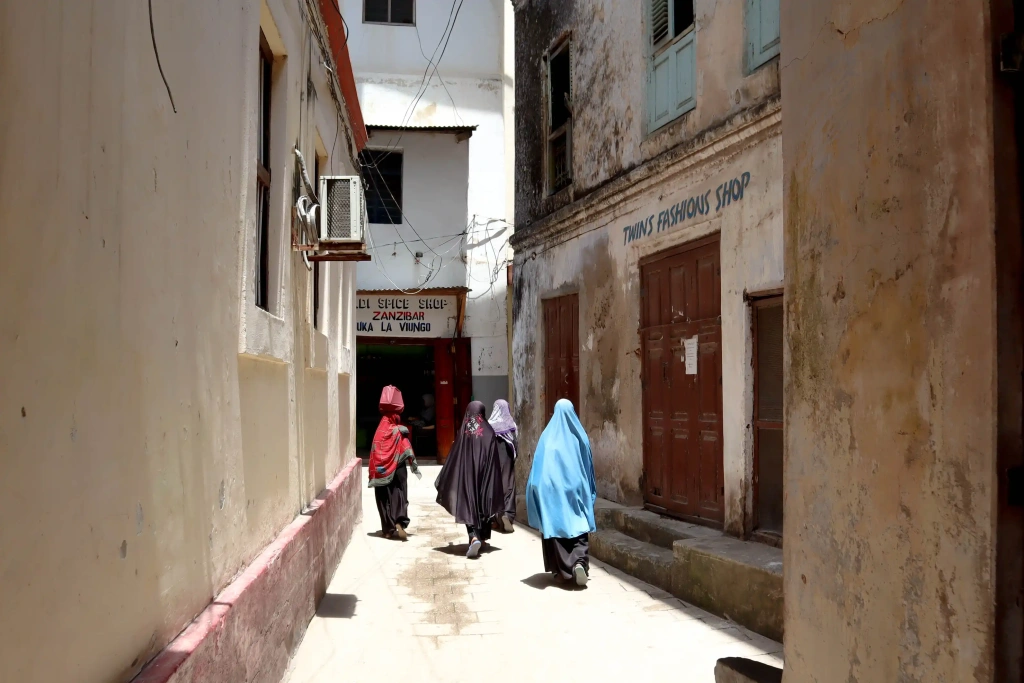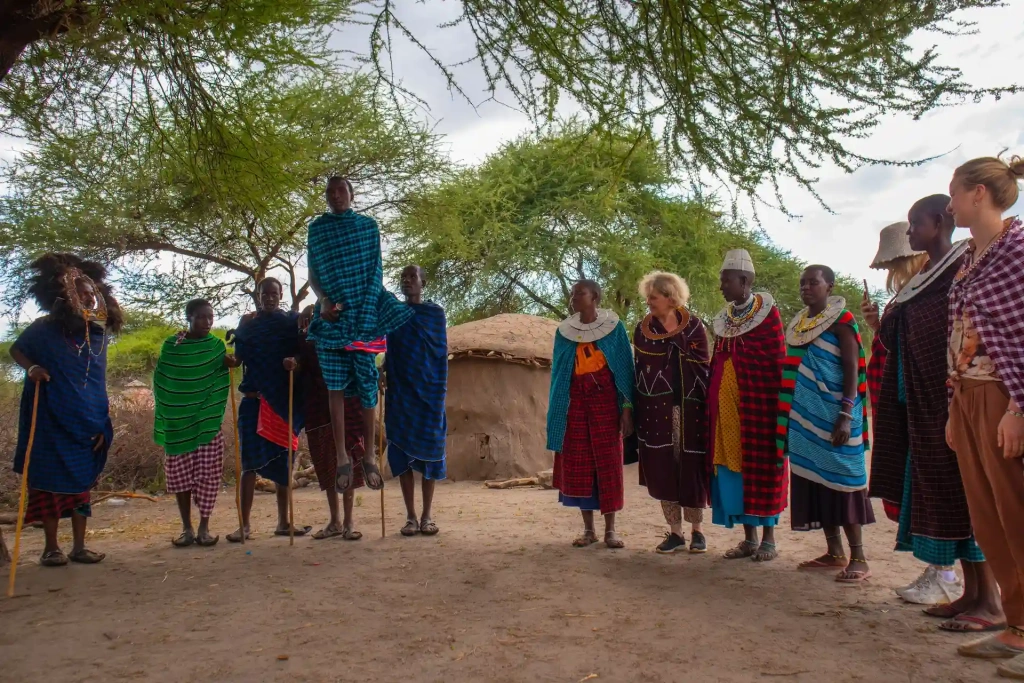Tanzania is one of the most culturally, religiously, and ethnically diverse African countries. It is home to a variety of religious groups ranging from major ones like Christianity and Islam to local beliefs and smaller groups. In this article, experts from Altezza Travel discuss the religious landscape of Tanzania.
Is there freedom of religion in Tanzania?
Firstly, it is important to note that Tanzania is a secular state. This means that freedom of conscience and religious belief, as well as the absence of discrimination on religious grounds, is guaranteed by the country's constitution and government. Tanzania is considered one of the most multinational and multicultural countries in Africa—it is home to about 150 different ethnic communities and tribes, each with its own cultural and religious customs.
According to surveys, nearly two-thirds of the population are Christians, Muslims hold the second spot (and the first in the Zanzibar archipelago). The third is shared by other religious groups and followers of traditional African beliefs. At the same time, being part of a particular religion does not exclude a belief in magic, witchcraft, and rituals.
What is Tanzania's main religion?
The majority of Tanzania's population adheres to Christianity—Christians account for 63%. Most of them are Catholics, but there are also Lutheran, Anglican, Orthodox, and other communities.
Islam is the second most prevalent religion in Tanzania. Muslims account for a third of the population. The semi-autonomous Zanzibar archipelago, consisting of several large islands, is 99% Muslim.
Tanzania also has smaller religious groups: followers of Buddhism, Judaism, Hinduism, Sikhism, the Bahá'í faith, animism, and mixed religious beliefs.
About 2% of Tanzania's population follows traditional African religions, rituals, and traditions which vary by region and ethnicity and are often blended with other religious teachings. Most of these are based on the belief in spirits that inhabit natural objects and ancestor worship. The legends underlying these beliefs often shape the lifestyle and activities of their followers.
In addition, many Tanzanians believe in magic and witchcraft. In case of illness, natural calamities, or other problems, they often turn to traditional African shamans, soothsayers, and herbalists. Some locals believe in curses and evil eyes, thus employing magical rituals, ceremonies, and totems for protection
Aside from national holidays, Tanzania celebrates religious holidays: Muslim, Christian, Buddhist, and Hindu.
In terms of percentages, according to Pew Research Center data, the religious breakdown in Tanzania looks like this:
- Christians – 63%
- Muslims – 34%
- Other religions and those who abstained from participating in the survey – 1.9%
- Local beliefs – 1.1%
Christianity in Tanzania
In terms of percentage, Christianity is the largest religion in Tanzania—according to a 2020 Pew Research Center survey, 63% of the population are Christians.
Christianity arrived in Tanzania at the end of the 15th century with the arrival of Augustinian monks who came to the mainland with the Portuguese explorer . Although Catholic missions were actively advanced into the interior of the country and successfully established in various settlements, they failed to maintain their influence in Tanzania during the rule of the Omani Arabs. Catholic only returned to the country at the end of the 19th century. At that time, many Tanzanians, previously unfamiliar with Christian teachings, gradually began to adopt this religion, and Christianity spread throughout the mainland. By the 20th century, the Christian community had significantly grown, and in the 1960s, the first African cardinal, Laurean Rugambwa, emerged in the Tanzanian Catholic community.
The overwhelming majority of Christians in Tanzania are Catholics, who constitute the majority among the mainland residents. According to surveys, the second largest denomination is Lutheranism. Also among the Christian population are Anglicans, followers of Pentecostal Christian groups, Orthodox, Seventh-day Adventists, followers of The Church of Jesus Christ of Latter-day Saints, and Jehovah's Witnesses.
Islam in Tanzania
Islam is the second most populous religion in Tanzania. According to the same 2020 Pew Research Center survey, Muslims account for 34% of Tanzania's population.
It is believed that Islam spread in Tanzania mainly through trade activities on the East African coast, rather than through conquests and territorial expansion, as was partly the case in West Africa, thus remaining predominantly a coastal phenomenon for a long time. Traders arriving in the territory of modern Tanzania married local inhabitants, gradually introducing their culture, language, and religion, that blended with local customs.
The oldest archaeological evidence of the presence of Islam in Tanzania is the Kizimkazi Mosque, located in the village of Dimbani. The mosque retains a Kufic inscription dated to the year 1107. Islam received widespread distribution on the mainland during the rule of the Omani Arabs in the mid-19th century, and in 1969, the National Muslim Council of Tanzania was established, regulating Muslim affairs and electing a .
The majority of Muslim population in Tanzania are Sunnis, but there are also communities of Muslim minorities, including Ismailis, Twelver Shiites, and Ibadis. Additionally, representatives of the Ahmadiyya Muslim community live in Tanzania. This religious movement spread to mainland Africa thanks to Indian activist Mirza Ghulam Ahmad in the early 19th century. Estimates suggest that about 1,000 Ahmadi Muslims currently reside in the country.
Religion in Zanzibar. Is Zanzibar Islamic?
The United Republic of Tanzania—the full name of the state—is divided into the mainland and the island archipelago. The latter includes several large islands of the Indian Ocean: Pemba, Mafia, Unguja (better known as Zanzibar), and many others—together they make up the , a semi-autonomous region that is part of Tanzania.
Unlike the mainland, the overwhelming majority of the island population follows the teachings of Islam. According to a 2020 Pew Research Center report, 99% of the archipelago's residents are Muslims. Surveys show that two-thirds of the island's Muslims are Sunnis. There are also several Shiite groups, mostly of Asian origin.
A significant difference between the island part and the mainland is that Zanzibar, although formally subject to the constitution of Tanzania, has its own president, judicial system, and legislative body. Muslims in Zanzibar have the opportunity to turn to a religious (Sharia) court for divorce, child custody, inheritance, and other issues under Islamic law. Decisions of such courts can be appealed to a higher court, which consists of the Chief Justice of Zanzibar and five sheikhs. The Chief Qadi, a Sharia judge, is appointed by the President of Zanzibar.
For tourists, the fact that Zanzibar is 99% Muslim means that during certain periods, such as the holy month of Ramadan, there are restrictions that need to be considered. For example, during Ramadan, local restaurants and grocery stores may be closed. In addition, there are all-season rules—as in many Muslim countries, it is forbidden to wear revealing clothing in public places, exposing knees, shoulders, and belly buttons. Violation of these rules may result in fines, although hotel territories and beaches are considered neutral zones.
Here are a few more restrictions tourists should remember while in Zanzibar:
- Consumption of alcohol in public places is prohibited, as is being in a state of intoxication. Moreover, alcoholic products are not sold in local stores—they can only be purchased at specialized outlets.
- Photography in mosques and other religious locations is prohibited. It is also advisable to be cautious when taking photos of local residents—to avoid misunderstandings, it is better to ask for permission beforehand.
- Excessive public displays of affection can also be seen as disrespectful to Islamic culture. Therefore, tourists are advised to observe ethical norms in public places.
Other religions in Tanzania
In addition to the followers of the two most populous religions, Tanzania is also home to Buddhists, Jews, Hindus, Sikhs, Bahá'ís, and representatives of mixed religious beliefs. Surveys show that the share of these other confessions is approximately 1.6%.
Local beliefs and witchcraft in Tanzania
Traditional beliefs of the indigenous peoples of Africa hold a special place in the religious landscape of Tanzania. As mentioned earlier, the country is known for its rich cultural and ethnic diversity—about 150 different ethnic groups live within its borders, each with its own customs, traditional beliefs, and rituals.
Common features of local beliefs include the recognition of a supreme being, and spirits that according to followers, inhabit natural objects such as trees or stones. Ancestor worship is an integral part of traditional faith, as descendants express gratitude for life, food, water, favorable working conditions, health, and children. However, there are no unified traditions in local religions - they vary depending on the region and ethnicity.
Religion of the Chaga people
The surroundings and slopes of , one of Tanzania's main attractions where climbing expeditions take place, have for centuries been inhabited by clans of the Chaga tribe, a Bantu group that forms the third largest ethnic group in the country. Most of its members practice Christianity (mainly Catholicism), with fewer practicing Sunni Islam, mixed religious beliefs, and the traditional Chaga religion, which has some similarities with Christianity and includes elements of ancestor worship and belief in the sun god Ruwa.
Moreover, many Chaga combine adherence to religious canons with belief in magic and witchcraft. For instance, the tribe has a sacred plant, Dracaena fragrans, which is used in many rituals: men make rings from its leaves, which they then throw at the feet of their beloved as a symbol of a marriage proposal. The plant is also planted on the graves of deceased relatives as a sign of respect and given as a symbol of reconciliation. In addition, its leaves are used to border cut trees to apologize to the person who planted the tree and to ward off misfortune.
Religion of the Sukuma people
Representatives of the , who also live in major cities in Tanzania, express their respect for ancestors in a special way. When a relative dies, tribe members honor their memory with prayers and special offerings – lwanga (millet beer) and cow dung.
Many Tanzanians give their children a second name in honor of a grandmother or grandfather in addition to a Christian or Islamic name. This tradition reflects a connection with the spirit world—it is believed that such a gesture of respect for ancestors will protect the child and shield them from diseases.
Some members of the Nyamwezi people identify as Muslims, but in practice, they follow a mixed belief system—adhering to the pillars of Islam while reverently interacting with the spirit world through sorcerers and magicians. Members of the Maasai tribe, for example, do not believe in an afterlife and maintain a traditional belief in the god of rain, thunder, and lightning, Ngai.
Tanzanian religion and culture are connected
Tanzanian religion is closely linked to the country's culture. For instance, the Makonde people are renowned for their exceptional wood carving talent, and wooden figurines of women are used as talismans. Meanwhile, the Makonde legend states that the tribe's history began with the ancestor of people, a creature that was neither human nor animal. Wandering the earth, one night, weary of its solitary existence, it transformed a felled tree into a figure similar to itself. The next morning, when the sun's rays touched the wood, the figure came to life and turned into a beautiful woman, who became the creature's wife. Together, they roamed the world, and only when they settled in the East African highlands did they have a descendant—the first child of the Makonde.
Magic and witchcraft in Tanzania
In general, magic in Tanzania often coexists peacefully with religion. Representatives of any confession may combine Christian, Muslim, or other religious beliefs with the belief that stealing a neighbor's chicken will bring magical retribution in the form of digestive problems. Moreover, many believers turn to fortune-tellers and shamans in case of illness or other problems. A study conducted by the Pew Research Center states that 60% of surveyed Tanzanians believe that offerings to ancestors or spirits can protect them from harm, and many Christians and Muslims include elements of traditional African beliefs in their religious routine.
Professor Joachim Mwami from the University of Dar es Salaam emphasizes that the work of traditional African healers is usually done without charge, and that charging for magical services is often practiced by fraudsters who want to take advantage of the locals' and tourists' belief in magic and the power of accompanying rituals. He explains that for centuries, witchcraft has served as the simplest explanation for any events for the local population, such as children's illnesses or natural disasters.
However, there are exceptions. Dr. Alyssa Crittenden from the University of California, San Diego writes that most members of the nomadic Hadza tribe neither believe in magic nor any deities, nor do they profess any religion. This tribe does not select religious leaders, shamans, or herbalists, and people do not practice witchcraft. Yet, the Hadza have a cosmology. They also believe that representatives of other tribes possess magical abilities, threatening them with curses, harm, and other troubles in case of conflict. The tribe has its own legend of descent to Earth—according to tradition, the Hadza people descended from the sky via a baobab or, in another version, a giraffe's neck.
Religious Holidays in Tanzania
Since Tanzania is a country with rich ethnic and religious diversity, in addition to state holidays, holidays related to various religions are also celebrated. For example, in the spring, Tanzanian Christians celebrate Easter, while the country's Muslims observe Eid al-Fitr, the Muslim feast of breaking the fast. Additionally, Tanzania also celebrates the birthday of the Prophet Muhammad, Maulid, Hindu holidays Vaisakhi and Durga Puja, the Buddhist ceremony Katina, and many others.
FAQ
Here we will briefly answer some of the popular questions about Tanzania often asked on Google and other platforms.
Is Tanzania an Arab country?
Although Tanzania is not considered an Arab country, its coastal regions and islands like Zanzibar and Pemba exhibit significant Arab and Persian influences. Stone Town in Zanzibar was once the capital of the Omani Sultanate, illustrating the deep historical connections and cultural impact of Arab heritage on the region.
Is Christianity legal in Tanzania?
Christianity is not only legal in Tanzania, it's the country's main religion with about 63% of the population calling themselves Christian.
What is the main religion in Tanzania?
The main religion in Tanzania is Christianity. According to Pew Research Center statistics, approximately 63% of the population identifies as Christian. However, coastal regions and Zanzibar are home to primarily Muslim populations.
All content on Altezza Travel is created with expert insights and thorough research, in line with our Editorial Policy.
Want to know more about Tanzania adventures?
Get in touch with our team! We've explored all the top destinations across Tanzania. Our Kilimanjaro-based adventure consultants are ready to share tips and help you plan your unforgettable journey.















